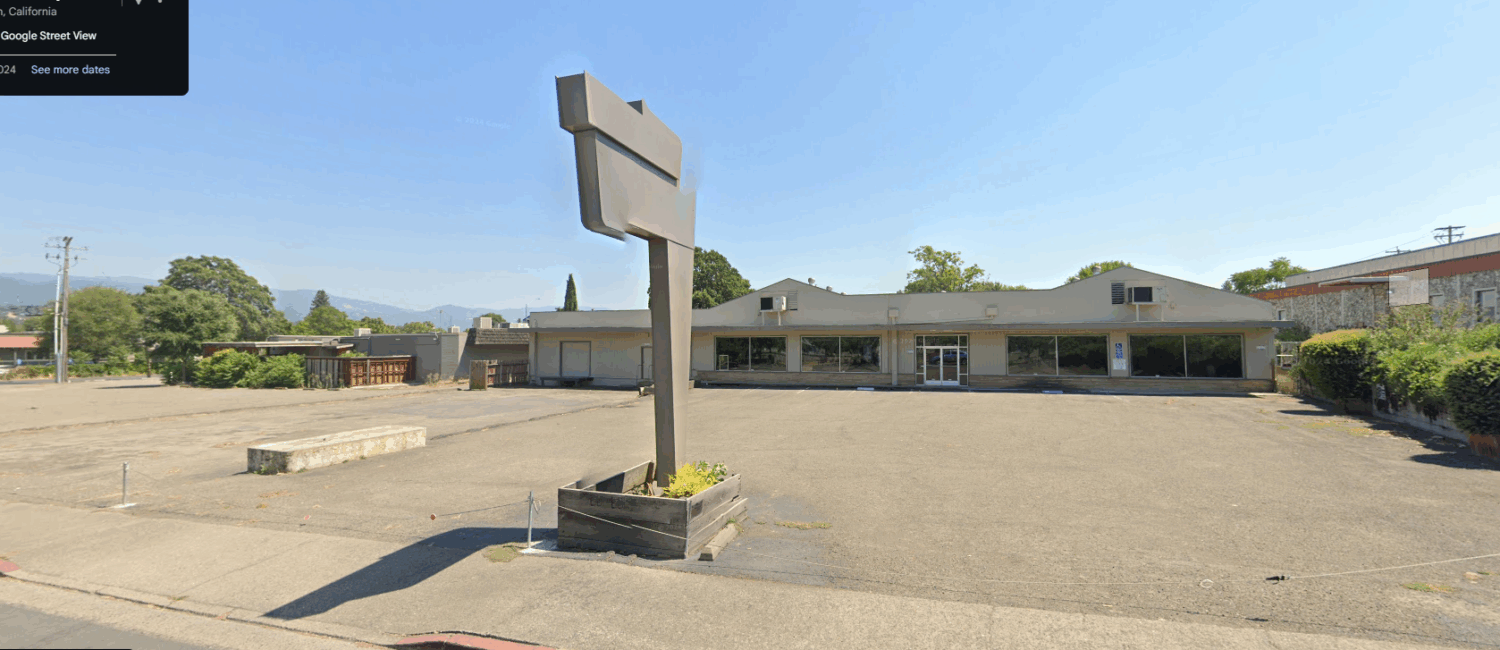Background
On April 22, 2025, a Demolition Permit application was received by the property owner, the Pinoleville Pomo Nation, to demolish a roughly 78-year-old vacant commercial structure.
According to records from the Mendocino County Assessor, the building was originally constructed in 1947. Because it is over 50 years old, the demolition request falls under the review process outlined in Ukiah City Code (UCC) Section 3016. The structure is not listed in the City’s Historical and Architectural Survey Update (1999) or the Architectural and Historical Resources Inventory Report (1985).
Documentation from the Mendocino County Historical Society supports the 1947 construction date. The building first served as a warehouse for Montgomery Ward and was later occupied by the Pioneer Company beginning in 1954. At that time, some remodeling may have occurred. Pioneer operated at the location until 1989, selling furniture, propane, appliances, and fuel oils. After Pioneer closed, Curry’s Furniture became the primary tenant. Over the years, the building has been associated with two addresses: 245 East Standley Street and 214 East Perkins Street.
Constructed during a time of significant commercial development in Ukiah, the building reflects mid-century commercial design. However, based on the Historical Society’s review, it does not meet the criteria for historical significance under UCC Section 3016. While it is one of several mid-century commercial structures still found in the downtown area, its design is not considered particularly unique or a representative example of the architectural style of that period.
Discussion
Although the building’s exterior has remained largely unchanged since 1954, it is not considered a significant or rare example of mid-century commercial architecture. According to the Mendocino County Historical Society, its design lacks the distinctive features necessary to qualify it as a noteworthy or exemplary representation of the era.
The structure does not reflect a major milestone in Ukiah’s cultural or architectural development. While it was built during a period of rapid commercial growth in the 1940s and 1950s, that pattern is already well documented and represented throughout the city. This building does not stand out in terms of architectural detail, design innovation, or broader historical context. It is also not located in a designated historic district and was not included in the City’s historical surveys conducted in 1985 or 1999.
The arrival of the Pioneer Company in 1954 aligned with a period of speculative development along Perkins Street. However, this commercial growth did not evolve into a significant historic district, and the building’s role in that period is considered minimal.
There is also no indication that the building is directly tied to any historically significant individuals or events. While it has hosted several local businesses over the decades, such as Montgomery Ward’s warehouse, Pioneer Co., and Curry’s Furniture, none of these have been identified as historically important under local, state, or federal criteria. Available records suggest that the businesses and their operators did not play a defining role in Ukiah’s broader historical narrative.
Demolition Review Committee (05-22-2025)
City Council Public Hearing (06-18-2025)
- Public Notice
- Hearing Materials (Item 14a)

















